Disclosure: Meeple Mountain received a free copy of this product in exchange for an honest, unbiased review. This review is not intended to be an endorsement.
Negotiation? Heavy interaction? COIN-adjacent gameplay?
Crescent Moon (2022, Osprey Games, designed by Steven Mathers) is already getting lots of comparisons to Root thanks to the classy production and asymmetrical gameplay.
When I read the rules for Crescent Moon, many of the elements from Sidereal Confluence came to mind, which is my all-time favorite negotiation game. My #1 gaming experience last year was the 9-player game of Sidereal Confluence I organized with friends. Truly, an amazing experience.
Yelling at other friends while working deals all over the room? Priceless. In that 9-player game of Sidereal Confluence, I was playing as the Zeth. I loved the ruthless nature of the dealmaking thanks to their faction power: I was allowed to rob other players at the end of each round.
Crescent Moon has some of that, thanks to a mix of how points can be scored. Each faction works a little differently, and over the course of just 3 rounds and 12 total actions (4 rounds in the longer version of the game), players represent entities from the Middle East in the 10th century. Every player is working to slowly build up relationships only to tear them down, sometimes in the same round.
Crescent Moon is an excellent time. The worst part about it is getting the real-world conditions just right; between player count, interactions, and finding human beings willing to negotiate, Crescent Moon demands a lot but the returns are absolutely fantastic.
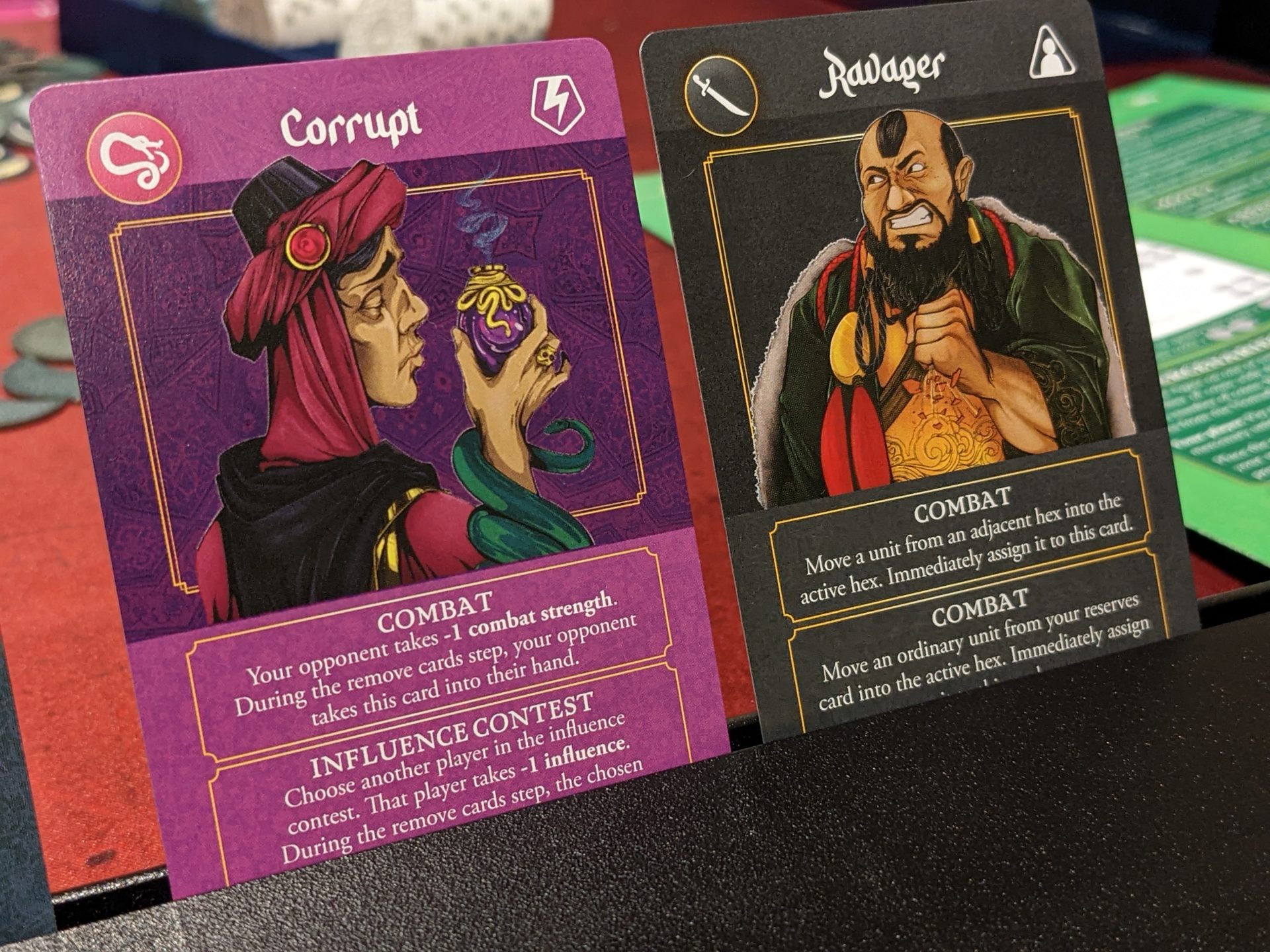
A 5-Player Game, with a 4-Player Variant
Crescent Moon hit retail in late May 2022. I received a copy from Osprey in April, and immediately went about playing the game.
I got 3 plays completed within about two weeks; each play was with 4 players. Each time I set up a night to get it to the table, our 5th player had to bail, got COVID, life happened, etc.
So, I still had the chance to play Crescent Moon at 4 players, but to finish out this review I knew I needed to get at least one play in at exactly 5 players.
This was MUCH harder than I expected.
I had lots of game nights where I had 3 players. Many other times, 4 players. Sometimes we had, say, 6 players, so we broke into two games of 3 players each, or (in the case of a game like Dungeon Fighter 2E) played a raucous dexterity game with the 6 players who came over.
It took almost two more months for me to have a game night where I could grab exactly 5 players, and it came in an odd way: a recent night had a whopping 9 people show up, so we split into groups of 5 and 4 so that I could play Crescent Moon at its full player count.
I want to call out this chain of events for one reason: Crescent Moon claims to be a game that will accommodate 4 or 5 players only. In reality, Crescent Moon should be played with 5 players, full stop. You can play it at 4, and while it is still very good, it is not the same game, and that version isn’t as exciting.
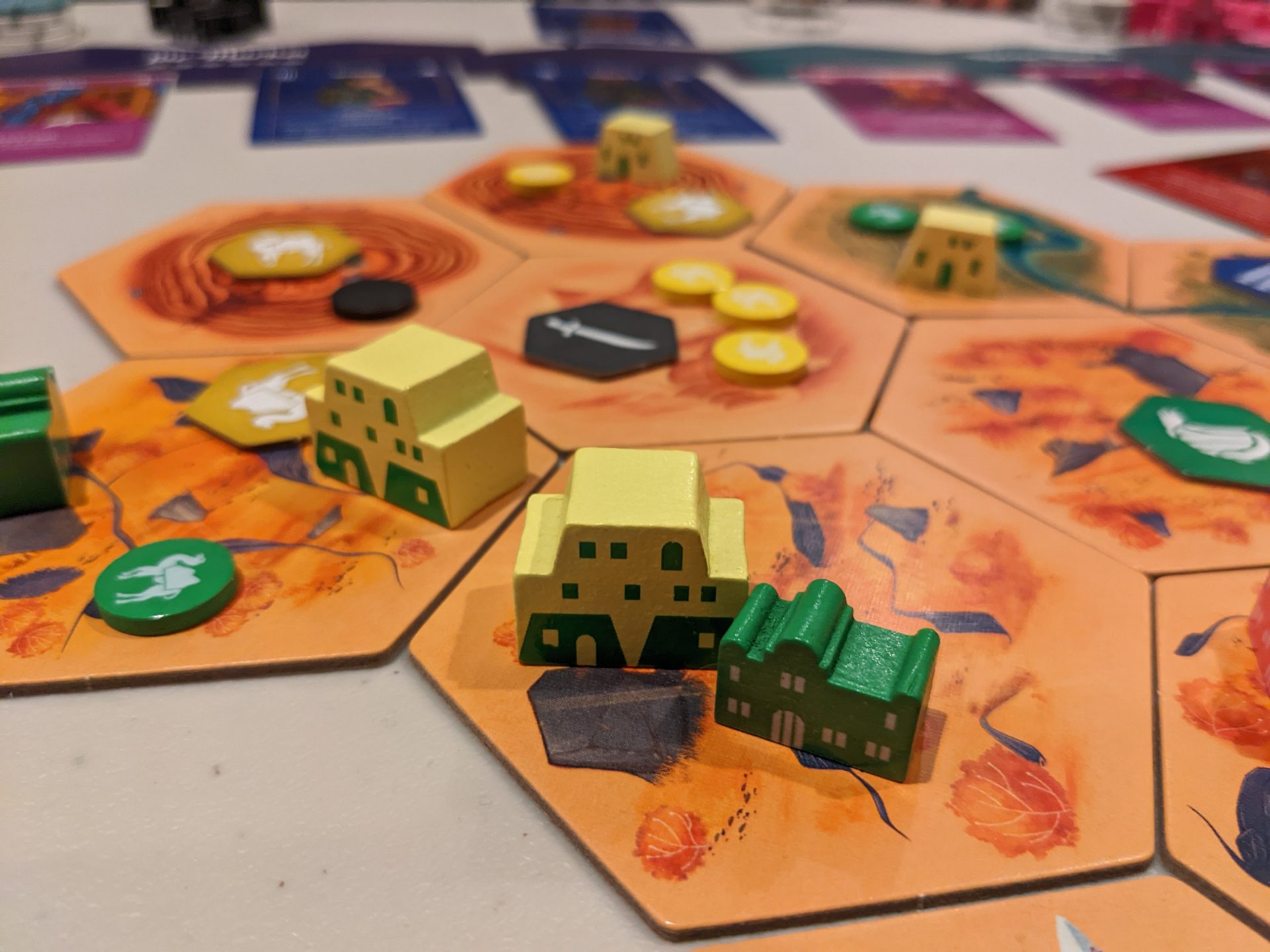
The Factions
I played Crescent Moon 4 times—3 times at 4 players, and once at its full player count—and played the game once each as the Warlord, Nomad, Sultan and Caliph factions.
Using one of the set-up options listed in the rules, Crescent Moon lays out its intentions simply: play 3 or 4 rounds, take 4 actions per round, and find a way to end up with the most points while manipulating influence and military might on a tiny map. A key part of taking actions is tied to the market of Power Cards available in the game.
Like other semi-closed economy games driven by a card market such as Pax Pamir 2E, Crescent Moon does something nifty with money. The cards are really important and grant factions single-use and/or ongoing powers once acquired. To acquire those cards, you’ll have to pay the faction listed in the upper-left-hand corner of each card. Often, you’ll think twice about buying a card when it means paying your neighbor for something they might use against you later, or vice versa!
Plus, each faction scores points differently. The Warlord wants to duke it out. The Caliph is the military match for the Warlord, but the Caliph is mostly interested in ruling civilized territories, hexes with cities and influence tokens. The Sultan likes cash, a lot. Using its ridiculous cash engine to acquire mercenaries and get towns and cities built all over the board, the Sultan also has its own market of cards which can be had in exchange for cash and future favors.
The Murshid is really interesting; they have the most cards available for other players to buy on the market, and they work to establish their political influence all over the map. They break ties in places where they have influence. Sometimes, other players will have to pay the Murshid just to make sure they don’t sabotage their plans.
The Nomad? I didn’t even win when I played as the Nomad, but this was easily the most fun I had playing Crescent Moon.
Starting with exactly zero cash, the Nomad traffics in the sale of mercenary military units either from the map or from their reserves (units ready for action, just not on the board yet). Even better, once the Nomad had units on the map, other players can bribe them to place their own mercs in the hexes where the Nomad’s units used to reside.
The main way the Nomad scores points? Cash. That means my job was to constantly—and I mean all night, during every other player’s turn—remind everyone of the handsome stock of mercs available from my shady-looking tabletop trenchcoat.
It was amazing. My 5-player, 3-round game was tight at the top; the Murshid had 37 points, the Sultan had 36, and the Nomad had 35, with the Caliph and the Warlord farther back. But each turn was a negotiation as the Nomad faction and I loved it.
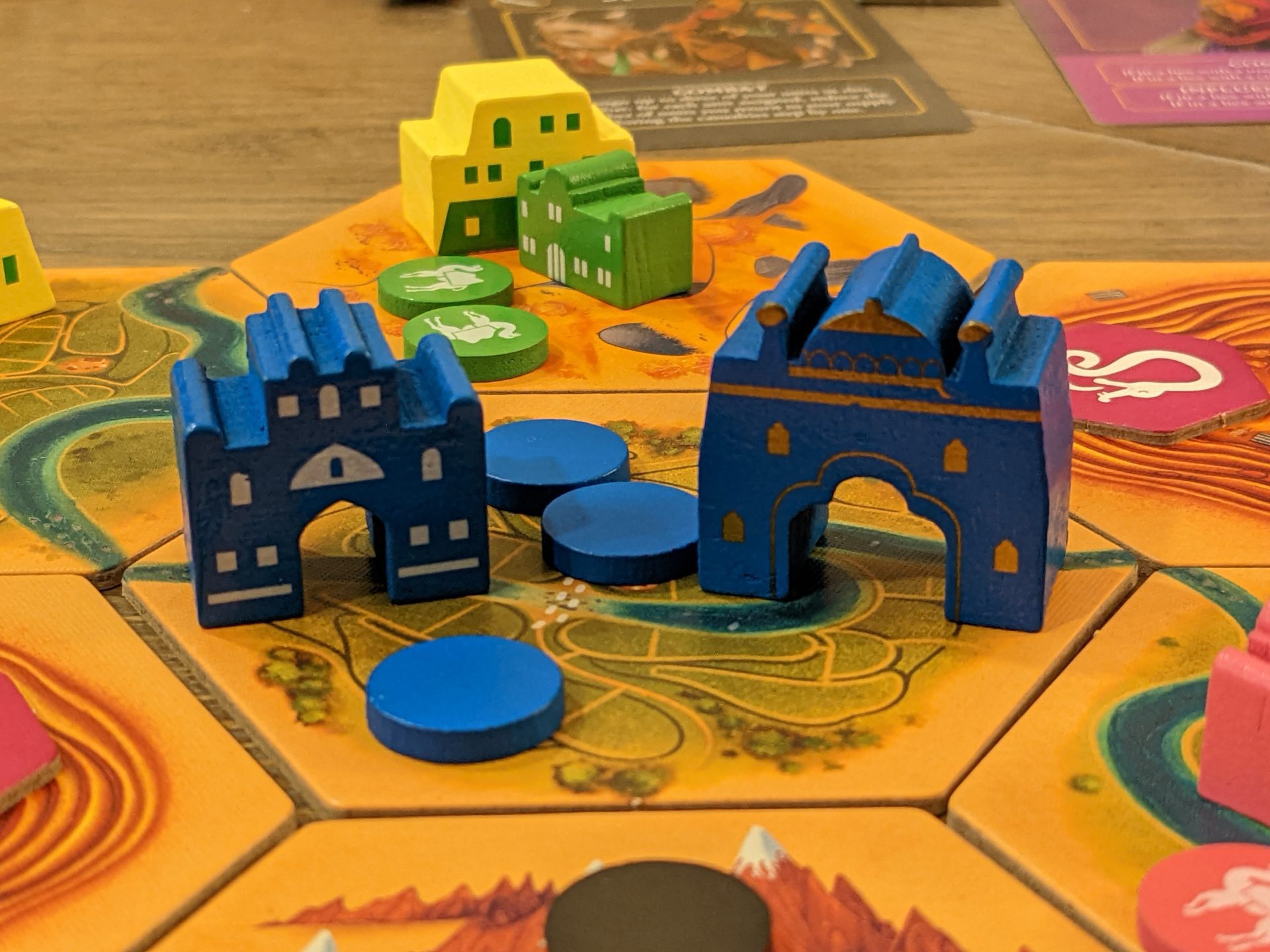
The Conditions Have to Be JUST Right
Even when you get 5 warm bodies to play Crescent Moon, you also want to make sure you get people willing to do a LOT of table talk.
I mean it. Even at the start of games, you are going to start working the floor. Buy a card from the Sultan early on. Find a way to massage your relationship with the Murshid, before you really need that faction’s help to win ties. And for the Nomad, it is never too early to start bribing mercenaries if you don’t have your own armies.
I am surprised how often relationships turned on a dime in the same round, or even the same action.
From my very first game as the Sultan, I found myself torn over who to support during influence contests. Once, I sided with a player who was bound to lose an influence contest just to show my support for their cause (and to get them to buy a card from me later in the round). Anger the Murshid too early, and you’ll find yourself regretting that later, only to find yourself laughing as other players are being held hostage by the Murshid’s massive hand of cards.
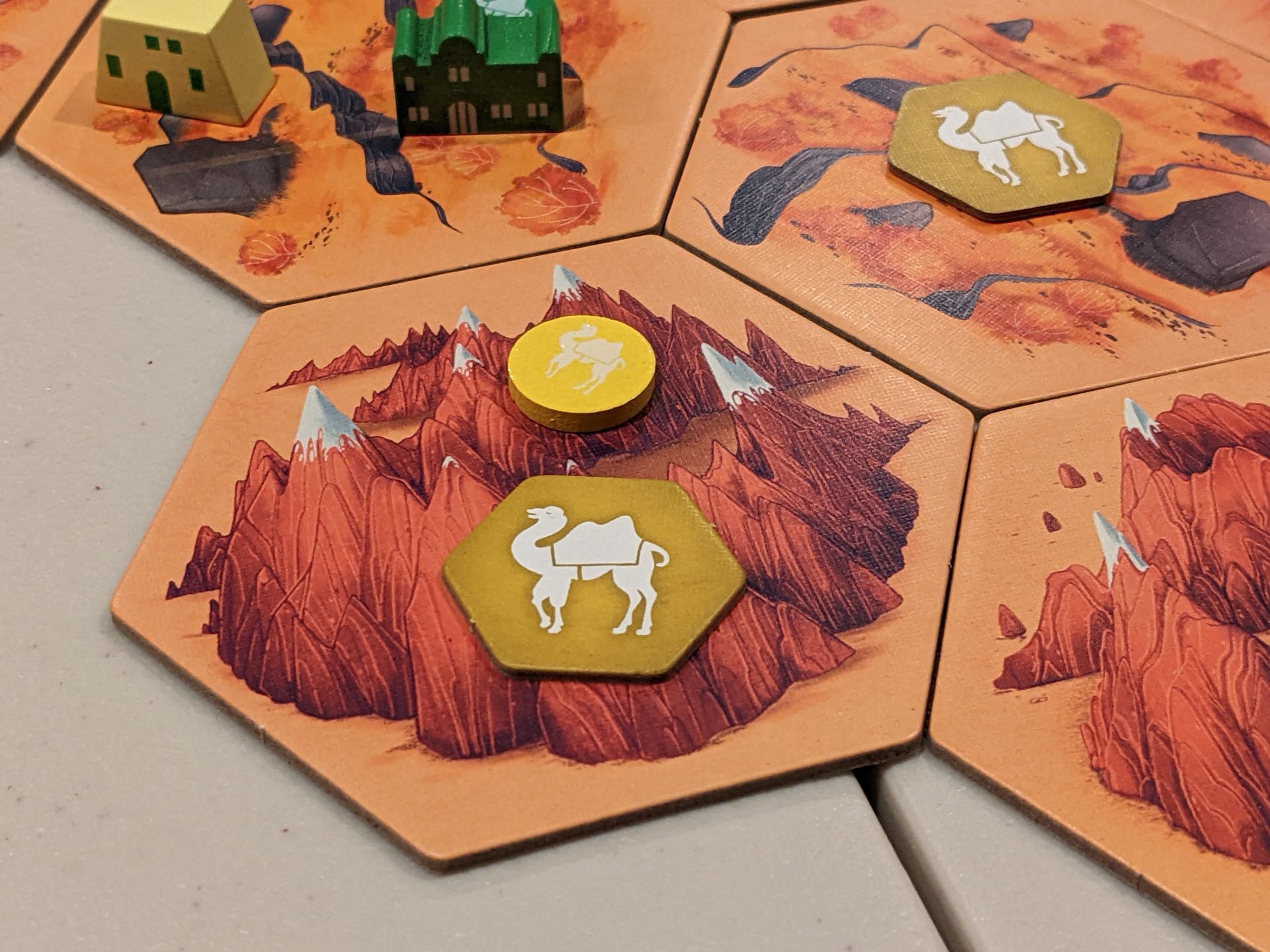
Other conditions? Don’t play the short game. It’s too short. I get why it is here, and I get that in a 5-player game, the “short” game might still work because some players take short turns. Players that know what they are doing can finish the short game even with 5 players in 90 minutes, because they get what things are truly worth. But the short game is just a tad too short, without giving players a sense of what will happen when really interesting opportunities for counterpunches surface.
With only 12 actions in the short game, you’ll spend 8-10 of them on basic stuff: building units or structures, buying cards, moving units to protect against attacks. The fun part in Crescent Moon is setting up other actions. A feint here to surround the holy site, or maybe moving merc units to an area near a river, soon after you’ve bought a Ships card, to potentially signal a river crossing soon.
And you need more time to see what happens when you set those moves up. In my first game of Crescent Moon, I didn’t even use all of the available actions amongst my 12 total turns. You won’t see enough of the cards. Scores are lower, which is fine, but the secretive nature of scoring gives some players better chances at fulfilling their secondary objectives, which are usually harder to attain.
The best part about the short game—which, again, I don’t recommend playing—is if you want to squeeze in some Crescent Moon before wrapping up a longer game night, and you’re not sure you’ll have the full 2-3 hours you’ll need. Maybe then, I’d recommend the shorter version of the game.
Still, trust me—play the long game.
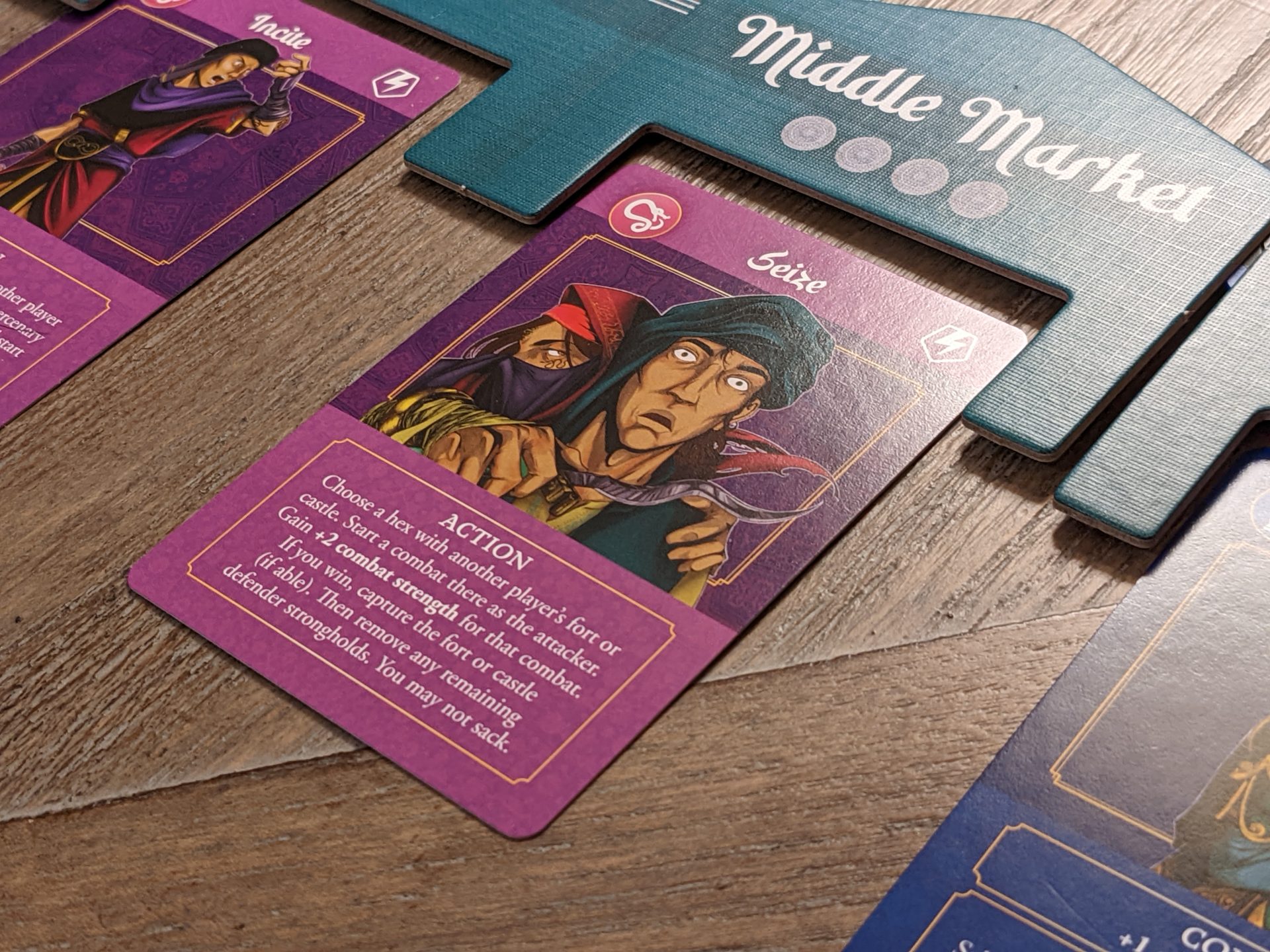
Don’t Worry, It’s Not Perfect
My fellow players haven’t enjoyed the fact that the card market’s 9 slots in the cardboard separating the Near, Middle, and Far Market area don’t accommodate sliding cards well at all. In fact, sometimes the Upkeep phase (where cards are cleared from the Near Market) isn’t smooth; this design choice is sloppy and a bit inelegant.
As great as the Power Cards are, you are going to need to read them to determine if you want them. Great eyesight is key here, so with my old eyeballs, I spent lots of time standing up to better see each card. “Hmm…lots of small text here,” commented one player. He was right; it is a bit of a pain.
Another thing doesn’t necessarily work, but this is likely just me: it feels like the Nomads, Murshid, and Caliph are just more interesting factions to play than the Warlord or Sultan factions. This means that playing as one of the other factions just won’t have as many chances to be involved in every conversation.
Now that I’ve played with 4 of the 5 factions in the game, I think that is bearing out to be true. Simply, the Warlord is as plain as vanilla ice cream and I’ll never choose to play as the Warlord again. When compared to my experience playing as the Nomad, it’s just night and day how interesting it is.
Ditto, then, for the Murshid. The Murshid faction is the sauce, my friends. Involved in almost everything, have the most cards in the deck, can swing ties in an influence contest. The Murshid feels like that advisor character in the first Dune book; always lurking, plotting, advising, in a seat at the table.
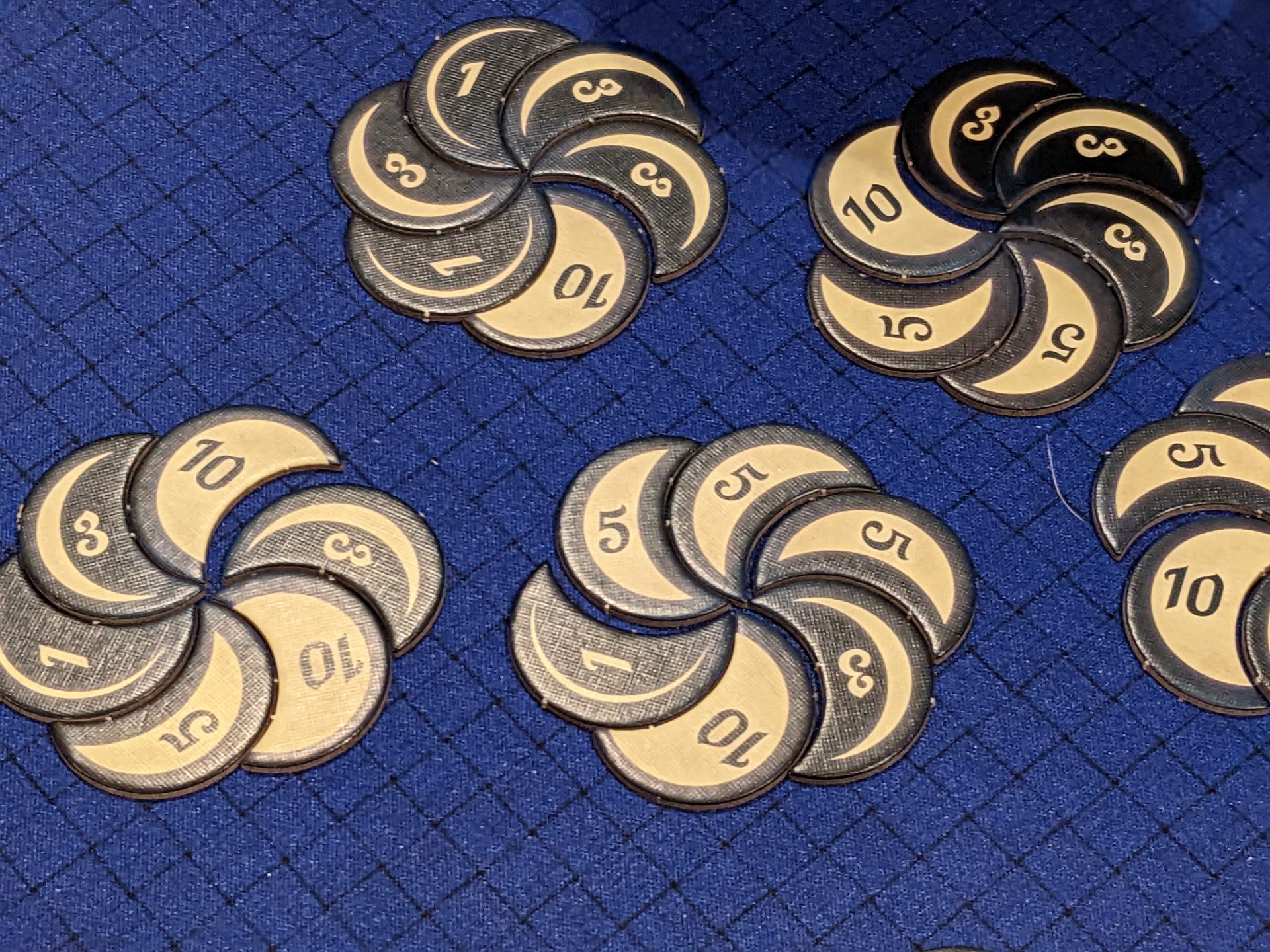
Don’t Pay MSRP, Then Enjoy
Crescent Moon is a $50 game in a $90 MSRP box. The price is simply too high.
But if you can split the difference and ensure you have exactly 5 players, Crescent Moon is a must buy.
I love wheeling and dealing. I like direct conflict and interaction. I enjoy a sassy opponent, someone willing to do a little smack talking while working the room. That just makes the whole game a richer experience, so playing this with your multiplayer solitaire Euro friend is going to end badly.
This game is a fantastic time if you have a solid group ready to play 5-7 times to get the most out of it. The factions are varied enough to be interesting over multiple plays. You can do a 5-player game of Crescent Moon in 2 hours and have plenty of great moments to relish later. Each of my games played out differently; some very cautious, some all-out war, one where everyone had to work through the Murshid because she had total influence control of the key spots on the board.
The Murshid has won 3 of the 4 games I’ve played; it is a challenge to understand why that happened so often (and in digging around online, other play groups are seeing this as well). I get why this happens in first-time plays: no one knows what anything is really worth, so they pay the Murshid for mob-style protection any chance they get.
However, in a group that rotates who is playing which faction, this won’t be an issue long term. That said, I don’t know how much “long term” Crescent Moon has in the box. It’s a game that I think I will love through play 8, 9, maybe 10. After that, I’m not sure this has real staying power, especially when reminded of how each faction scores. It’s harder to negotiate when everyone knows your script.
Crescent Moon has been a blast and I’m thankful to have had the chance to experience it for myself. Osprey Games (Undaunted, Brian Boru, Imperium: Classics) continues a great run with another top choice.


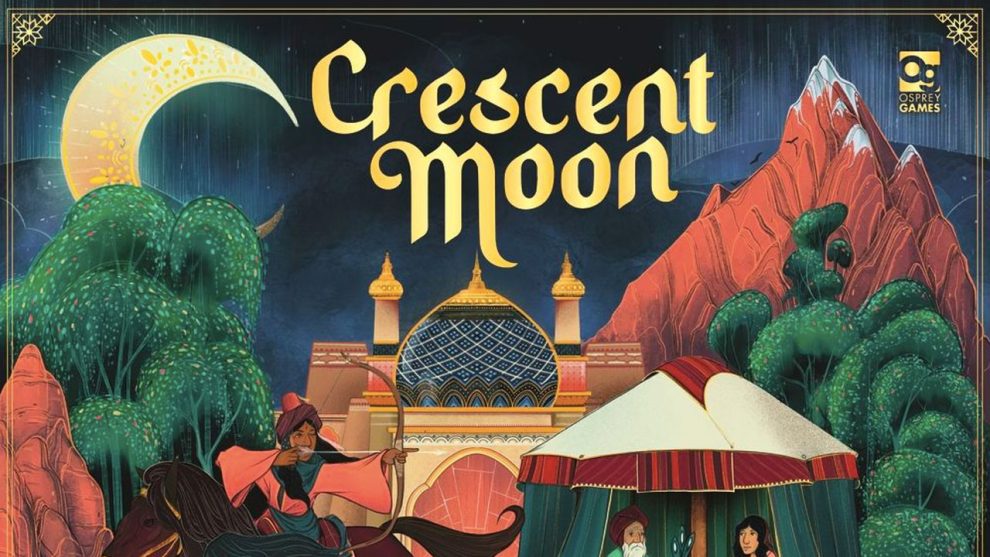
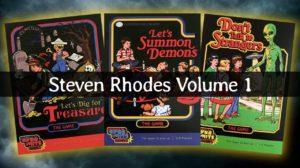
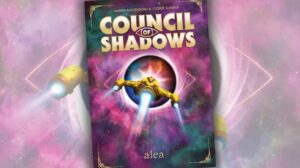

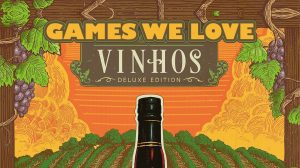




Add Comment